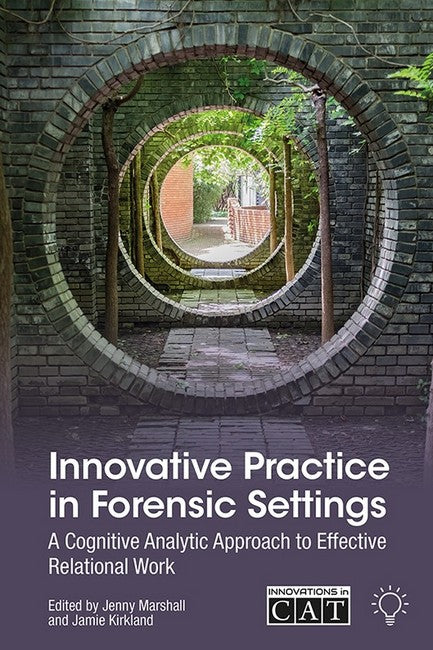Jenny Marshall is a Consultant Clinical Psychologist at Ridgway Hospital, Tees, Esk and Wear Valleys NHS Trust, and an accredited CAT Practitioner and Supervisor. She has a long history of working in low and medium secure services with people with mental disorders, and she has a strong interest in the application of the CAT model to reflective practice. She works with Catalyse, a social enterprise offering CAT training, therapy and consultancy through a network of expertise across northern England. Jamie Kirkland is a Consultant Clinical Psychologist in the Division of Forensic Mental Health and Learning Disabilities with NHS Greater Glasgow and Clyde, where he is the lead for reflective practice. He is a CAT Trainer and Supervisor, and co-Director of CAT Training Scotland. He has applied CAT in secure settings and with community learning disability teams, and has a strong interest creating reflective spaces for multi-disciplinary staff teams.
Request Academic Copy
Please copy the ISBN for submitting review copy form
Description
Foreword by Katharine Russell Part 1: CAT Concepts in Forensic Work 1. The CAT model in forensic services (Editors) 2. Psychological safety in forensic settings - What can a CAT model offer? (Editors) 3. Micro-narcissism -Mapping moments of inflated or deflated ideas and overvalued or devalued roles in our work (Steve Potter) 4. Understanding the CAT model of trauma -A beginner's guide to the Multiple Self State Model (David Harvey) Part 2: Applying Concepts to Specific Settings 5. The need for a multi-agency approach to working with offenders - the MAPPA approach (Rajan Darjee, Joe Judge & Jamie Kirkland) 6. Multi-agency working - It's all about the relationship (Rajan Darjee, Joe Judge & Jamie Kirkland) 7. Using CAT to enhance agency and engagement (Claire Browne) 8. Using CAT in prisons (Abigail Willis & Clare Ogilvie) 9. Using CAT with Young People-Relationships, the real keys to YOI (Caroline Wyatt) 10. The use of CAT in offender personality disorder pathways (Andrea Daykin & Sue Ryan) 11. CAT, gender and neurodiversity (Phillip Clayton, Lucy Morris, Clare Edmunds & Pam Mount) 12. The use of CAT with women (Lindsey Jones & Phyllis Annesley) Part 3: The Bigger Picture 13. CAT and trauma-informed care (Laurence Jones) 14. Reciprocal roles between therapies -a dialogue (Lawrence Jones) 15. Commissioning and quality in forensic services (David Harvey) 16. Focusing on inequality and power differentials in forensic contexts - How can CAT help? (Rhona Brown, David Harvey & Lucinda Bolger) 17. Concluding thoughts (Editors)

